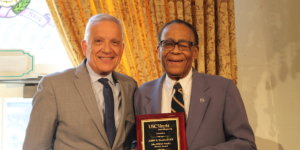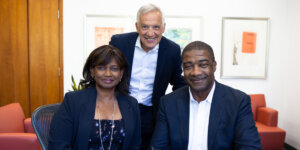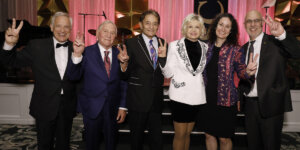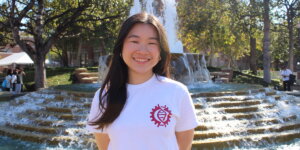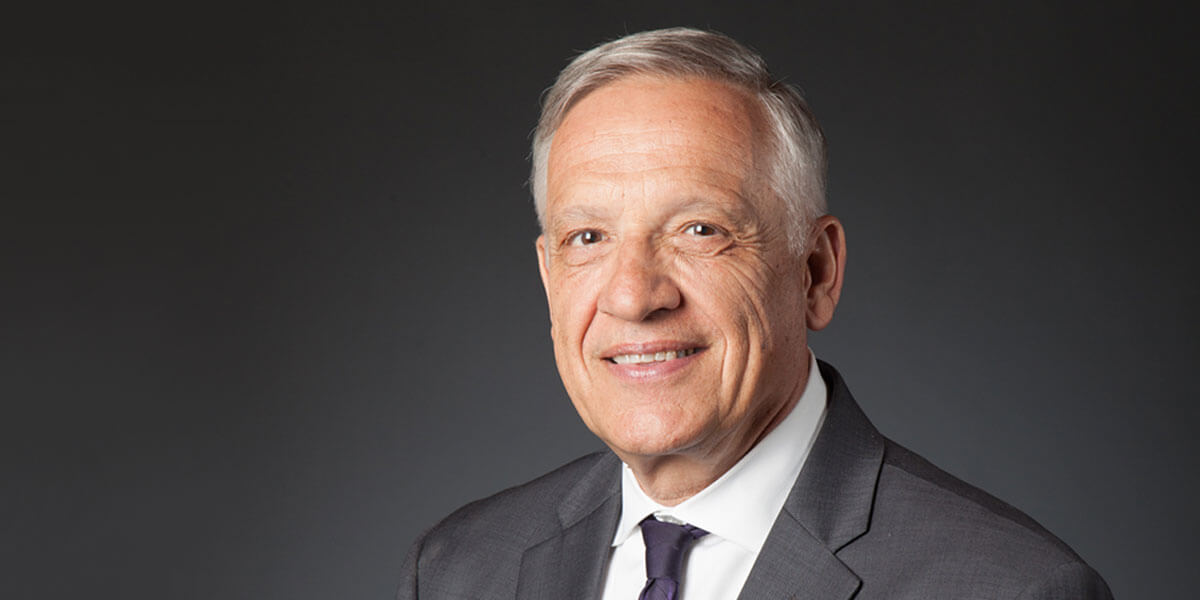
USC Viterbi Dean Yannis C. Yortsos served as the moderator for the panel, leading the discussion of the panelists. Image Courtesy of Dean Yortsos
The Engineering Deans Gender Equity initiative, or EDGE, recently held an online panel where engineering deans discussed how to respond to challenges to diversity and gender equity at the faculty level posed by the COVID-19 crisis. Deans from USC, Drexel University, the University of Kentucky and Oregon State University talked about how universities could deal with the challenges of working from home, staying connected without in-person classes and meetings, and interruptions to research and other projects.
The May 6 panel was moderated by Yannis C. Yortsos, dean of the USC Viterbi School of Engineering, who in 2018 helped launch the EDGE initiative, which is backed by American Society of Engineering Education, or ASEE. Between 2013 and 2017, Yortsos served as chair of the ASEE Deans Diversity Committee, in which capacity he spearheaded the Dean’s Diversity Pledge. About 230 engineering schools around the nation have signed the pledge to date.
“Diversity and inclusion in times of crisis continue being as important or even more important than before,” said Yortsos, who currently leads the EDGE initiative as its principal investigator.
The recent panel allowed deans from different engineering schools to share ideas and solutions to issues posed by the current pandemic.
During the panel, Yortsos posed questions to three different panelists: Sharon Walker, the dean of the College of Engineering at Drexel; Rudolph G. Buchheit, the dean of the College of Engineering at Kentucky; and Scott Ashford, the Kearney Dean of Engineering at Oregon State.
“The panel discussion gave us a great opportunity to hit the pause button on COVID chaos to benchmark one another on how we were addressing issues of equity and inclusion that are really important to support our faculty members and ensure their success,” Buchheit said.
For example, Yortsos described how the disruptions could worsen existing gender inequalities experienced by female faculty because of the greater burden of household and child-rearing duties often taken on by women. He also asked the panelists how the financial impacts of the crisis will affect the allocation of funding to activities and programs that advance and support diversity and equity on campus.
“This is something I’m worried about,” Walker acknowledged. “I think that we as engineering deans have to continue to elevate the importance of these issues. Frankly, the money’s not going to be behind it, so we have to put our political capital behind it. Deans of engineering have to work together to create a pipeline of talent and also to foster and retain that talent once they join the professoriate.”
Walker, who has served as the Drexel’s engineering school dean since 2018, is a Trojan alumna who graduated from USC Viterbi with a degree in civil and environmental engineering in 1998.
Ashford also sees value in increased communication among engineering deans. “It is terrific to share best practices,” he said. “I get great ideas every time I hear what my colleagues are trying.”
According to Gretal Leibnitz, project director of the EDGE initiative, the panel discussion was so valuable because of the commitment and expertise of the dean panelists. “All were very articulate about how important it is that we make diversity, equity, and inclusion that lens through which we make critical COVID 19 pivot decisions, rather than just a to do that falls to the bottom of the list,” Leibnitz said.
The deans’ online panel was one of many efforts by the EDGE initiative over the past several years to promote faculty gender diversity, equity, and inclusion. Other resources have included workshops and assessment tools for deans and tools, resources, and opportunities for female faculty.
The EDGE initiative, which aims to foster a culture of inclusion on campuses, aligns closely with the values of USC Viterbi, a school that has long been a leader in supporting and valuing historically underrepresented groups in STEM.
In 2019, USC Viterbi proudly announced that, for the first time in the school’s history, the entering undergraduate class was exactly 50% female.
“The Viterbi School of Engineering is committed to strengthening our efforts to attract populations underrepresented in engineering, create an inclusive and equitable climate, and retain and support a diverse community of scholars,” said Brandi P. Jones, the vice dean for Diversity and Strategic Initiatives at USC Viterbi.
Published on June 12th, 2020
Last updated on June 12th, 2020




